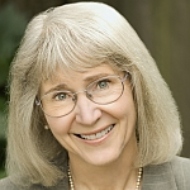It wasn’t all that long ago, I suppose, at least on a geological timescale. The board of trustees of the Fayette County Public Schools had been flirting with a policy to require teachers to teach “the new science” of creation science, and scientists on the campus of the University of Kentucky, where I was then teaching, were not happy about it. We had formed an organization with teachers and non-fundamentalist clergy called CEASE, for the Coalition for Effective Action in Science Education. It was a clunky name, but whatever.
This was very early in the fight to keep creation science out of the classroom, before the legal cases that finally, in 1987, resulted in the Supreme Court’s declaring that teaching creation science in the public schools was unconstitutional. But in 1981, there was a real possibility that such unscientific nonsense would end up being taught in Lexington schools. One graduate of these schools, a University of Kentucky undergraduate named Dan Phelps, showed up at my office in the spring of 1981 full of indignation: Henry Morris of the Institute for Creation Research had been in town on a speaking tour, provoking Phelps to join CEASE and do what he could to keep young-earth creationism masquerading as science out of his hometown schools. A geology major, he was especially furious at Morris’s claims that science demonstrates that the Earth was only a few thousand years old.
Phelps quickly became a CEASE stalwart. He wrote cogent and persuasive letters to the editor, attended meetings of the board of trustees, testified about how geology showed that our planet was billions of years old, not thousands, and generally was an advocate for good science on and off campus. As a graduate of Lexington schools, and a University of Kentucky science major, his perspective was especially helpful: he could testify how important it would be for future Lexington high school graduates not to be miseducated if they had any hope of succeeding in college.
That was more than thirty years ago. The enthusiastic undergraduate is now a Kentucky state government employee, working as a geologist in the Energy and Environment Cabinet. You might ask, what has he done for us lately?
This 2017 Friend of Darwin awardee didn’t just hang up his creationism-fighting hat after the Lexington board of trustees voted against instituting an “equal time” policy: he continued monitoring creationist activities in Kentucky for decades. Looking through the NCSE website’s compilation of news from Kentucky over the years, it’s clear that there has been a long list of problems ranging from attempts to derail or damage state science education standards (in which evolution has drifted in and out), bills (too many bills) to weaken the teaching of evolution, and, of course, the young-earth creationist ministry Answers in Genesis.
Since the arrival of Ken Ham and AiG in Kentucky in 1994, Phelps has kept a close watch on their activities. The founder of Kentuckians for Science Education, Phelps and his colleagues helped to prevent the Creation “Museum” from being built at its first proposed site, near a real museum, Big Bone Lick State Park, “the birthplace of American paleontology,” which houses an excellent collection of Pleistocene mammal fossils. When local citizens found out that a large-footprint museum was going to be built, they objected to the predicted traffic and congestion; they prevailed, and the museum ultimately was built in open country in the north of Kentucky. Phelps’s analysis of the Creation “Museum” on NCSE’s website is in some ways better than an actual visit: with his summary, you not only see virtually every display and piece of signage, but also actually get some real science.
And then came the Ark Park, or as AiG, with less rhyme, calls it, the Ark Encounter, with its controversial qualification for a rebate of $18 million in state sales taxes, its controversial employment practices, and its disregard of huge swathes of established geology, paleontology, biology, archaeology, and history—documented in Phelps’s exhaustive review on NCSE’s website. Once again, we are indebted to Phelps for an amazing amount of research on the details of county and state decisions regarding the tax incentive, and for calling attention to the illegality of AiG’s decision to hire only fundamentalist Christians. Although the Tourism Board agreed, AiG sued the state and won a decision in federal district court allowing them the tax rebate. Not even Phelps wins every time.
Over the years, Phelps has been the go-to person for the press looking for commentary on the various legislative bills in Kentucky promoting antiscience, for discussion of the various shenanigans of AiG, and for accurate and accessible information on the sciences of geology and evolution. When not otherwise engaged in these activities, he runs the Kentucky Paleontological Society (which he founded) and arranges public lectures on the geological sciences. And Phelps certainly has been NCSE’s go-to person when we need information from or help in Kentucky. He’s a great friend to NCSE, and has worked literally for decades to defend evolution education in Kentucky. It’s hard to think of a more appropriate Friend of Darwin winner. Dan, old friend, congratulations!

